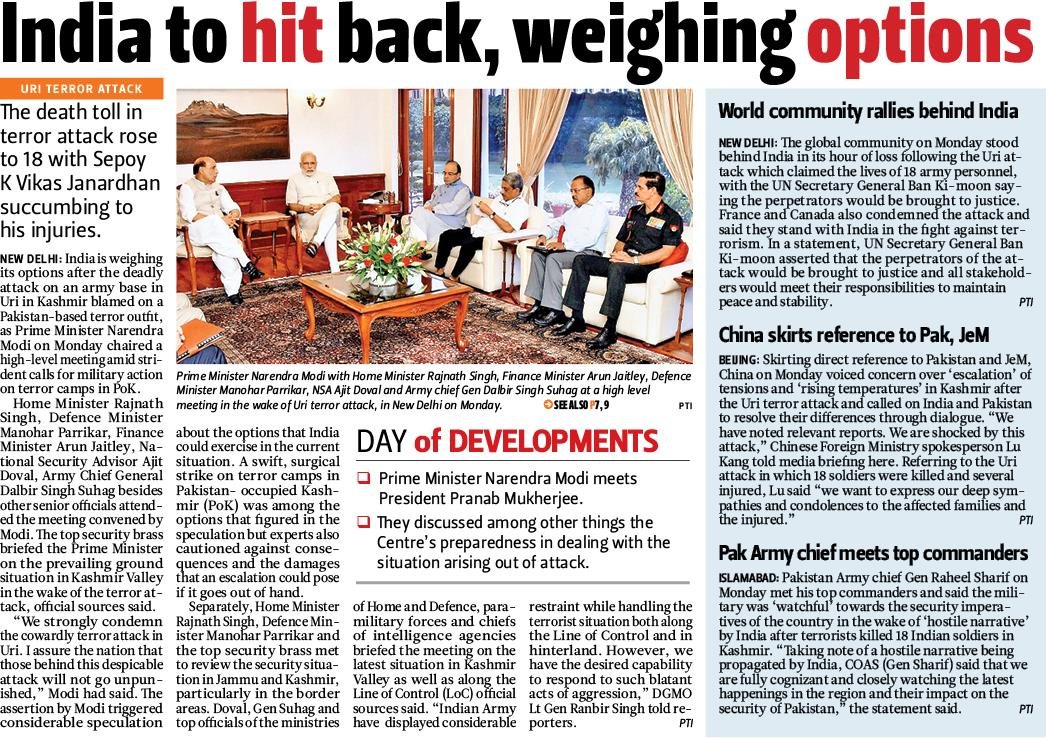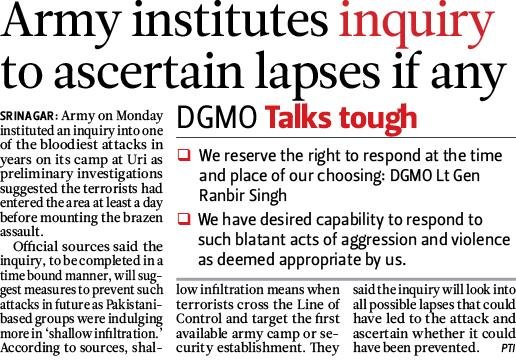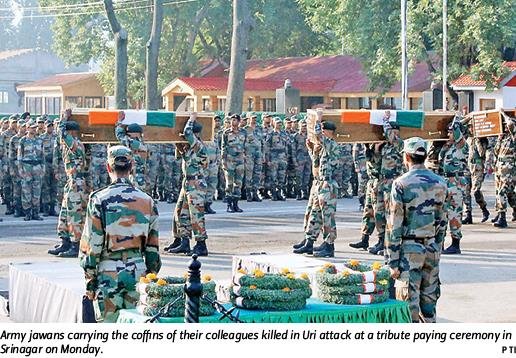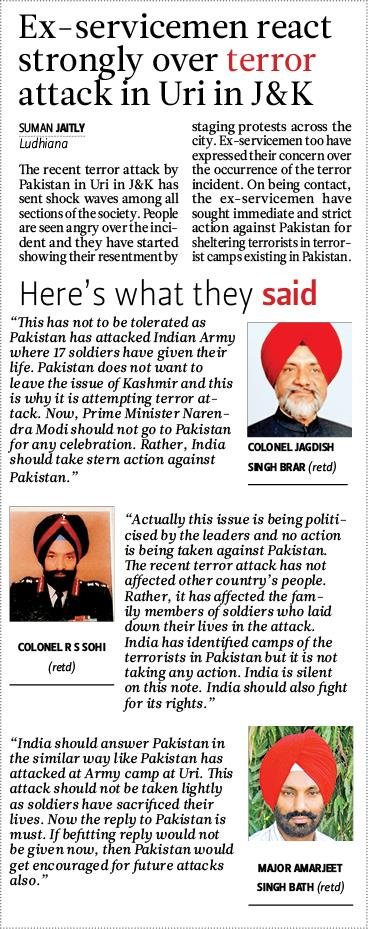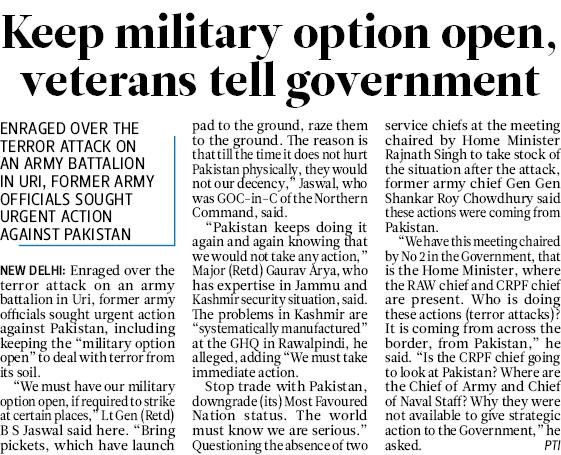LOOPHOLES Past attacks, including last year’s ambush at Chandel in Manipur, also point to the army being prone to terror strikes when new units move in to guard strategic points
Attacks are often timed when rotation of units is taking place as there’s a perception that the guard may have been lowered. It can be a dangerous window as sometimes complacency may set in. SENIOR ARMY OFFICER

NEW DELHI: The Uri fidayeen attack in which 17 Indian soldiers were killed is a grim reminder of the army’s vulnerability to terror strikes when new units are moving in to replace older ones.
NITIN KANOTRA/HT
Security personnel guard the Line of Control in Jammu and Kashmir on Sunday.
Fifteen of the soldiers killed in the pre-dawn attack formed the part of an advance party of 6 Bihar that had come in to relieve 10 Dogra that was deployed along the line of control (LoC). Two Dogra soliders were also killed.
The army said the four terrorists, who were killed, targeted a “rear administrative base” where a large number of soldiers were stationed in tents and temporary shelters as the rotation of units was under way.
Last year’s Chandel ambush in which 18 soldiers were killed also took place when the Dogra unit deployed in Manipur was on its way out to a peace location. An advance part of the unit had already moved to Chandigarh to set up the base there.
The Chandel ambush bears the infamy of having the highest number of army casualties in a single incident in nearly two decades. The Dogra soldiers were part of an administrative convoy. India responded with a cross-border raid, targeting and destroying two insurgent camps in Myanmar. India’s Special Forces killed more than 50 insurgents.
Also, four soldiers from 21 Bihar and one from 14 Maratha Light Infantry (MLI) were shot at close range in an ambush along the LoC in Poonch sector in August 2013. The strike came when 21 Bihar was moving out and 14 MLI was coming in.
“Attacks are often timed when rotation of units is taking place as there’s a perception that the guard may have been lowered. It can be a dangerous window as sometimes complacency may set in,” said a senior army officer.
However, former northern army commander Lieutenant General BS Jaswal told HT that there was a misconception that the guard is down when rotation is taking place.
“It’s true that new units take time to settle down as they are not seized of the ground reality. When a unit moves in, the guard is at a high pitch because they know they are vulnerable. No one wants to get killed,” said Jaswal.
The Uri sector has a geographical disadvantage as it is under direct observation of enemy posts at greater heights, army officers said.
No matter how high intensity the guard is, the attackers have the tool of surprise, said Jaswal. “Whoever takes the initiative first will get favourable results,” he said.
It remains to be seen how the army will re-work its strategy and posture to be more effective.
After the January 2013 beheading of a soldier in Mendhar sector, the then army chief General Bikram Singh said the force reserved its right to retaliate against Pakistan at a time and place of its choosing. After the August 2013 strike in which five soldiers were killed, Singh reprimanded his top commanders in Jammu and Kashmir for not launching a massive retaliatory strike against the Pakistani army along the LoC.
In January 2014, he declared the army avenged the murders of its soldiers along the LoC by the Pakistani by inflicting casualties on the neighbouring army.
Quoting Pakistani news reports that 10 of their soldiers were killed and another 11 injured in recent clashes along the LoC, Singh said, “Our boys have done a stupendous job.”














